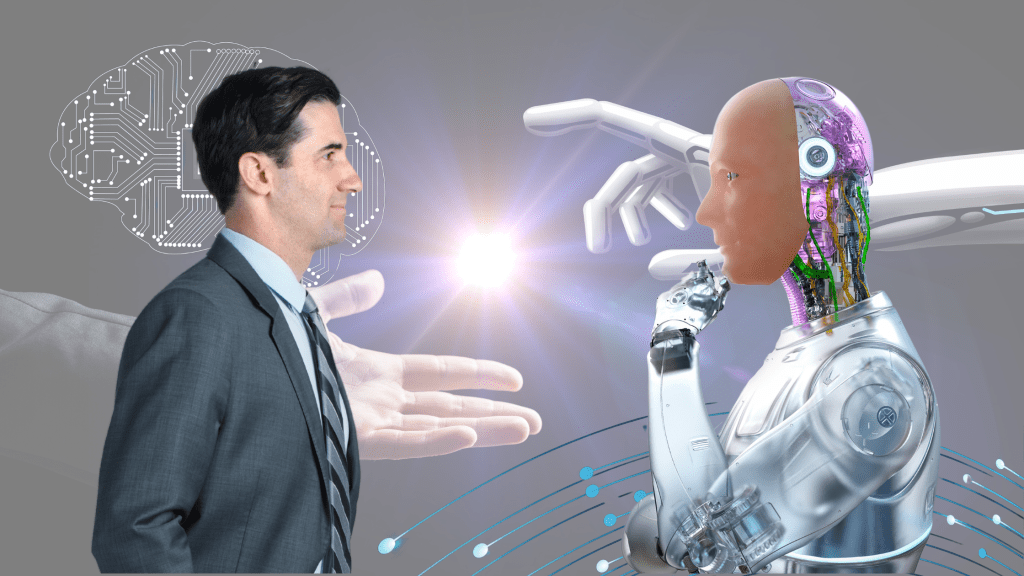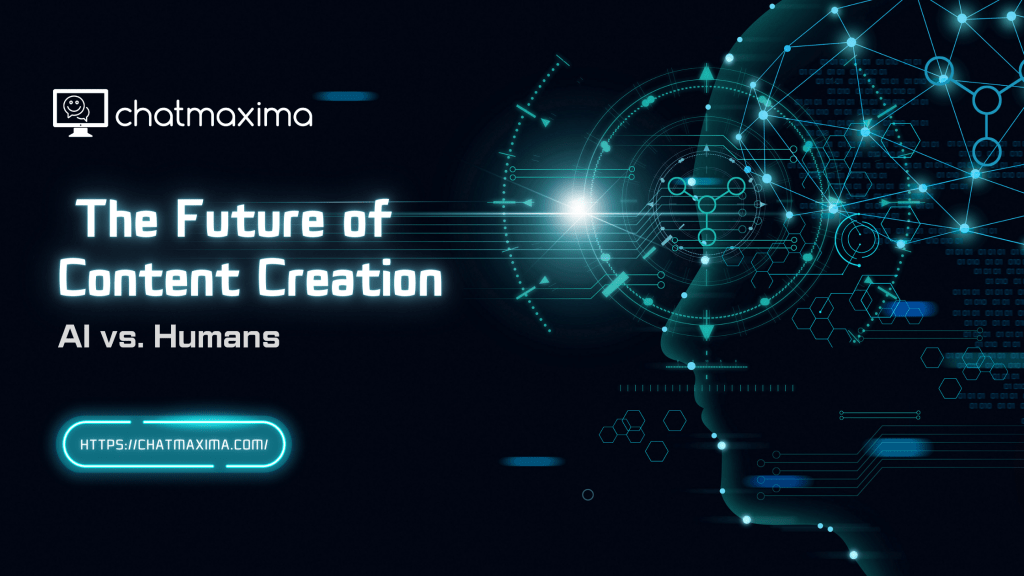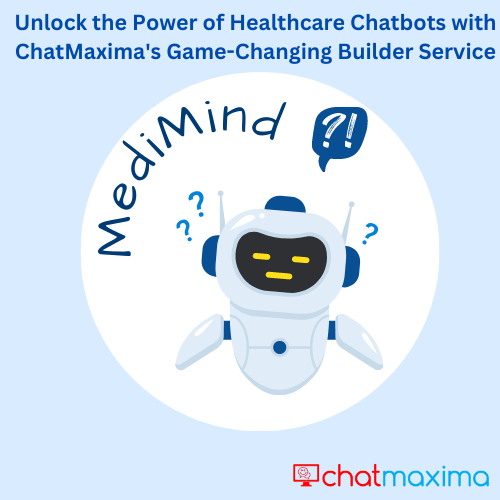Introduction
In the rapidly evolving landscape of content creation, the intersection of AI and human creativity is reshaping the way marketers generate and deliver content. This digital revolution brings forth both potential benefits and challenges, making it a crucial debate for marketing professionals. To fully understand this discussion, let’s define key terms: AI (Artificial Intelligence) refers to the simulation of human intelligence in machines that can perform tasks traditionally requiring human intelligence. Machine learning is a subset of AI that enables machines to learn from data and improve their performance over time. Natural language processing (NLP) is a branch of AI that focuses on the interaction between computers and human language. Content marketing involves creating and distributing valuable, relevant, and consistent content to attract and retain a target audience.
The Rise of AI in Content Creation
Technological advancements have led to the rise of AI tools capable of producing written content, images, and even videos. These tools, such as GPT-3 for text generation and DALL-E for image creation, leverage machine learning and NLP to generate content efficiently. For example, GPT-3 can generate human-like text that is difficult to distinguish from content written by humans. These AI tools have the ability to generate large volumes of content quickly, which can significantly increase productivity in content marketing. Furthermore, AI-powered content creation allows for enhanced personalization at scale, as machines can analyze vast amounts of data to tailor content to individual preferences and behaviors.
Human Creativity in Content Marketing
While AI has made significant strides in content creation, it is crucial to recognize the irreplaceable value of human creativity. Humans excel in areas such as emotional intelligence, cultural nuance, and ethical considerations. Storytelling, a powerful tool in engaging audiences, is an art form that requires human touch. Human marketers leverage empathy and emotional intelligence to craft messages that resonate on a personal level, evoking emotions and building connections with their audience. Case studies have shown that human-created content often outperforms AI-generated content in terms of engagement and conversion rates, emphasizing the unique value that human creativity brings to content marketing.

Collaboration Between AI and Humans
The future of content creation lies in a synergistic approach where AI and human creativity work hand in hand. By integrating AI tools into the creative process, marketers can leverage the efficiency and data analysis capabilities of AI while relying on humans for strategic direction, final edits, and ethical considerations. This collaboration enhances creativity, efficiency, and scalability of content production. Real-world examples showcase the success of this partnership, with marketers using AI to generate initial content and refine it with human expertise, resulting in highly engaging and impactful content.
Challenges and Ethical Considerations
As with any transformative technology, AI in content creation poses challenges and ethical considerations. One challenge is ensuring content originality and avoiding copyright infringement, as AI tools are capable of generating content that may unintentionally resemble existing works. There is also a risk of generating misleading or biased content if AI algorithms are not properly trained or supervised. Additionally, the impact of AI-generated content on employment within the creative industries raises concerns. To address these challenges, ethical guidelines for AI use in content marketing are crucial. Transparency, accountability, and maintaining human oversight are essential to ensure the responsible and ethical use of AI in content creation.
The Future of Content Creation
Looking ahead, the future of content creation will likely see the development of more advanced AI technologies capable of understanding context and emotion. This will enable the creation of new forms of content that blend AI efficiency with human creativity. Marketing professionals will need to continuously learn and adapt to leverage AI effectively in their content strategies. While AI can augment human creativity, it is essential to safeguard the irreplaceable value of human touch in content creation.
Conclusion
In conclusion, the future of content creation lies in the collaborative efforts of AI and human creativity. By embracing AI technologies while maintaining human oversight and creativity, marketers can craft more engaging, personalized, and effective content. Balancing the efficiency of AI with the unique value that human creativity brings will be crucial. As the landscape continues to evolve, marketing professionals must stay informed about technological advancements and explore innovative ways to integrate AI into their content strategies. How can we strike the right balance between AI and human touch in content creation?

